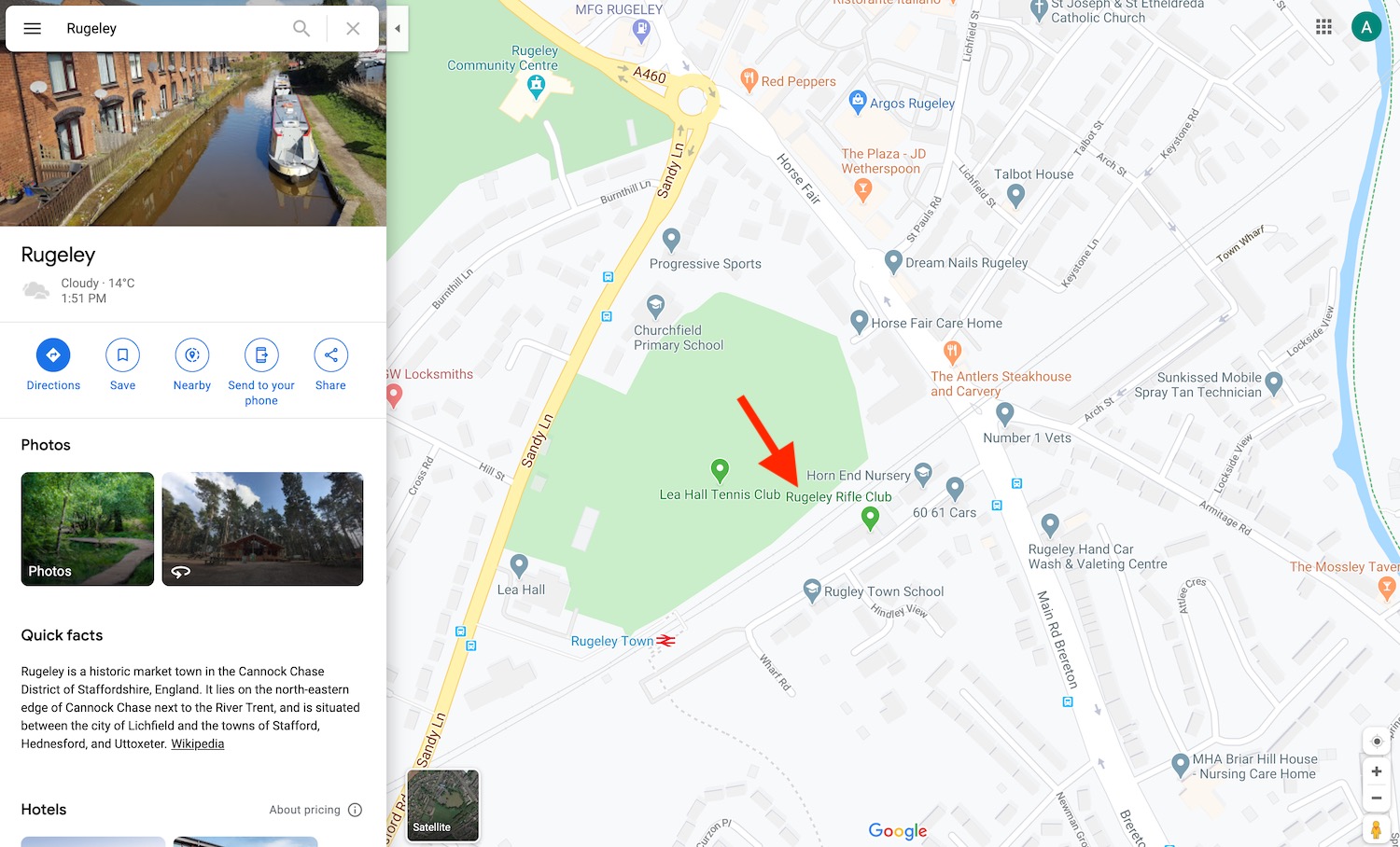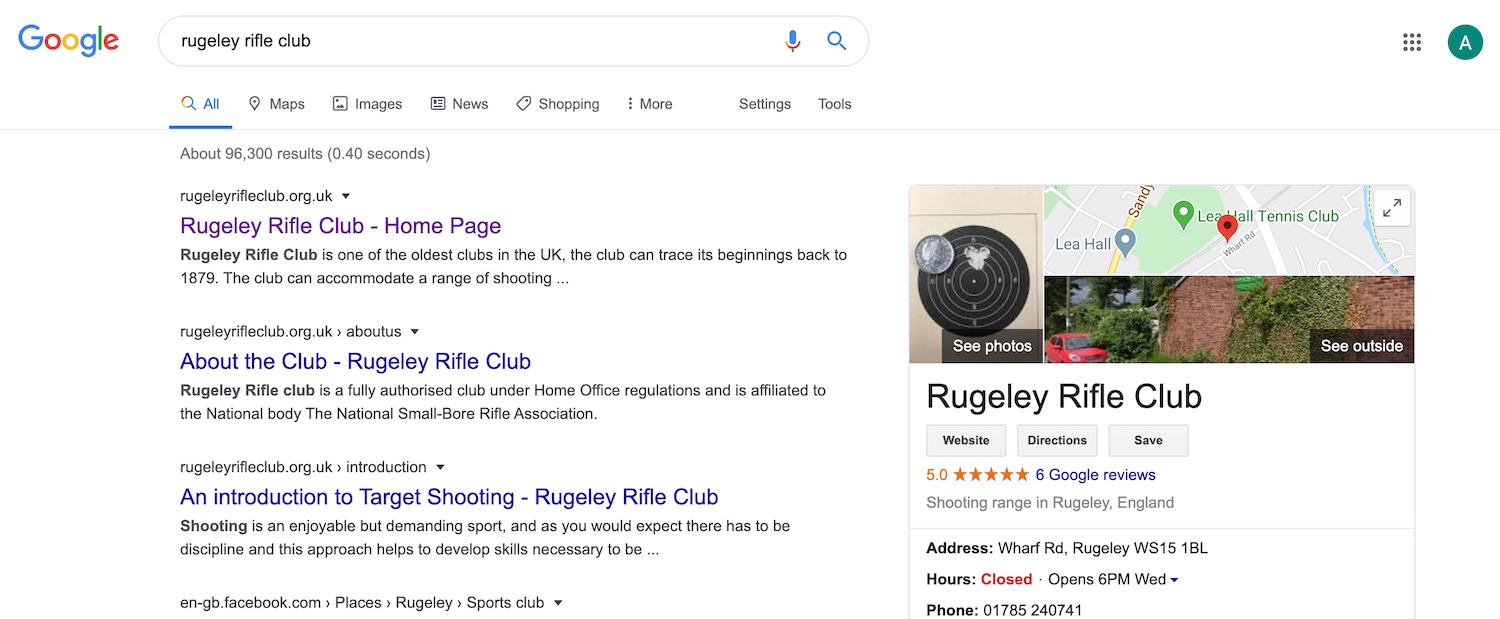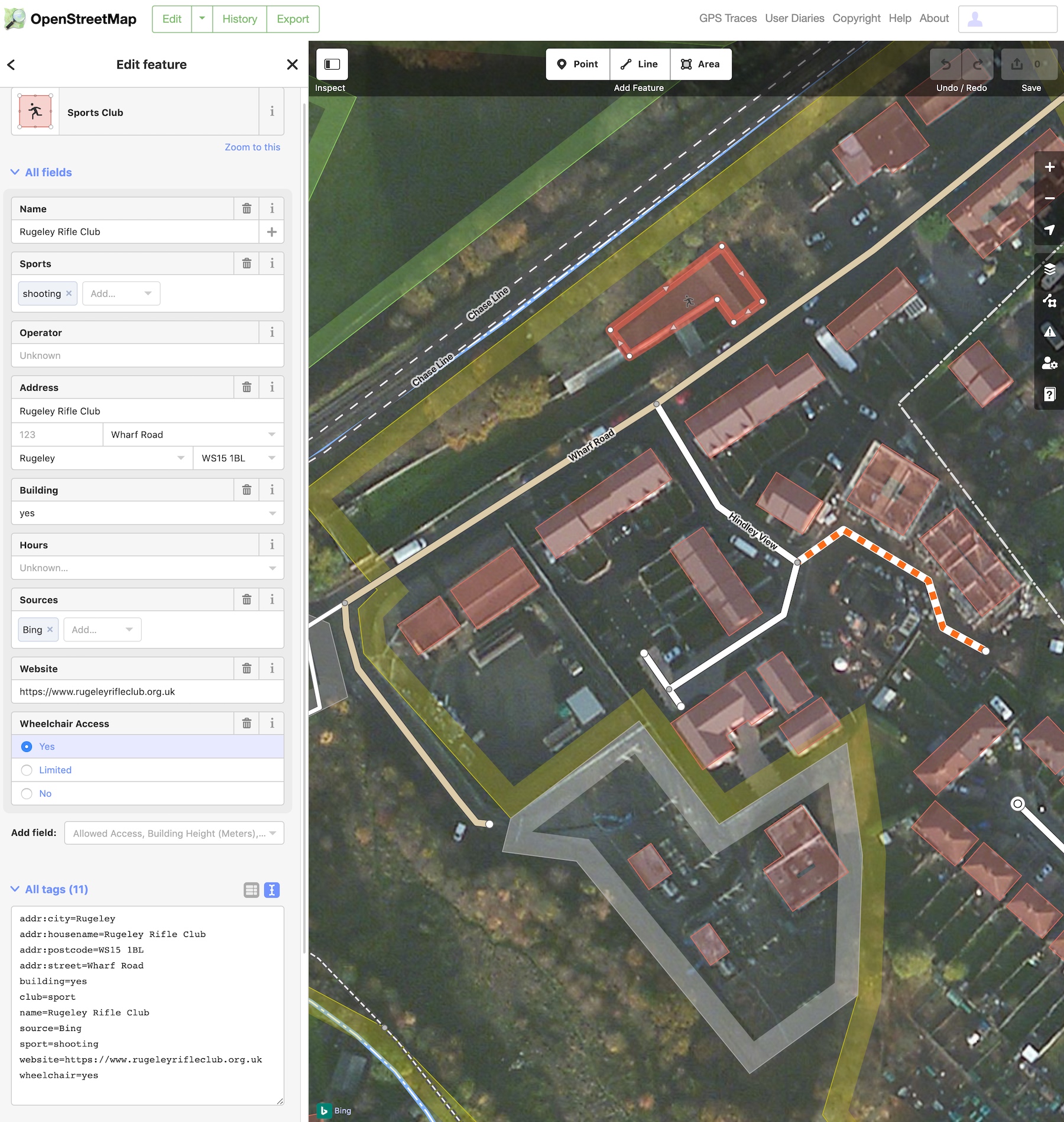Club Website 101 Part 3 - Mapping for Clubs
Last year I wrote about club websites and their role in recruiting for your club.
Of course, even the best website is only useful if users can find it. This might be through links from Facebook, the NSRA/NRA club finders or other third parties, but most commonly via search engines. Submitting a sitemap through the webmaster portals that Google and Bing provide is a key step and both provide resources to get started.
One other very effective way of making your presence known is to use Google and Bing’s Business Listings to enhance your search visibility. This will also make you show up on Mapping providers. You’ve almost certainly been looking at your town in Google or Bing Maps at some point and seen business listings (not ads, just pins and points-of-interest) pop up, even for things you weren’t specifically looking for. You may have learnt something about your local area that you didn’t know before. There is enormous potential for clubs to raise their profile this way.
For example, Google Search Console tells me that Google Search results have displayed rugeleyrifleclub.org.uk 734 times in the last month. These 734 impressions have resulted in 113 actual clicks. But in that same period, users have viewed our Google Business Profile 6,560 times - 2,220 Search Views and 4,340 Map views.
Developing a Business Profile improves your Search rankings as it improves your organisation’s standing in terms of “local” search. A basic crawl of your website will categorise you in terms of shooting and subject, but adding a Business Listing and getting a pin on the map makes you much more visible in local listings. Whilst Shooting is an international sport, your club’s potential members are probably located within 10-15miles. In recruitment terms, you don’t really care that much about web traffic from outside your country or even your region.

A minority of clubs may have valid security reasons for not wishing to publish their location. But many clubs are known to some extent in the community or have fairly obvious premises. Listings in mapping services are of no real consequence to security, whilst improving your club’s visibility and helping newcomers find you. Rather than having to plug a postcode into their preferred app, they can just search for you.
Google and Bing
Unsurprisingly, both integrate their mapping with Google My Business and Bing Places. You create your Business Profile, giving them as much or little information as you like and somewhere along the line will be prompted to give an address and put a pin on the map.
Google want to verify listings by sending a code to a phone number. This isn’t great for people who do not wish to publish their personal phone number (since many clubs do not have a dedicated phone line). Happily, they also offer the option to physically mail you a postcard with a code on it. On receipt, you enter the code and this proves that you are operating from that location.
Bing offers phone/SMS verification, but also postcard, email and online.
Both platforms will encourage you to run ads with them, but you don’t need to, nor do you need to enter any sort of payment details. Their business listings are free. Once verified, you’ll start seeing an info box popping up during searches and also start seeing your pin on their mapping platforms.

Less is probably more in terms of detail. For instance, you can enter opening hours - which is fine, provided you are willing to keep it updated. If not, keep it bare-bones, just a basic listing pointing to your website.
Apple Maps
Apple sit slightly apart from Google and Bing in that they do not operate a Search engine as such and do not offer advertising. But they do have business listings to support both Apple Maps and Siri requests. You can add data via Maps Connect.
Open Street Map
The other platform I want to talk about is the lesser known Open Street Map.
OpenStreetMap is an initiative to create and provide free geographic data, such as street maps, to anyone.
In fact, Bing actually use OSM mapping data as a source (amongst others) for compiling their own maps. Other prominent users include Apple, Facebook, Wikipedia and FourSquare who use it as a source for geodata. Listing your club in OSM means that it will be visible in any and all projects that draw data from OSM. OSM does not have business listings as such. When you sign up as an editor you are literally committing edits to the master map, just as edits to Wikipedia are visible to all.
If you want, you can get super involved and map your club out in great detail adding in buildings, ranges and descriptions. But if you’re not that confident or simply not interested in learning the ins-and-outs of OSM, then you can just add a pin with some salient data - business type, website, address, etc. That’s enough to ensure the object will be visible to downstream users of the data.

Final Thought
Make sure that your accounts are documented. If you change your opening hours, make sure you have a list of all the places you have listed your opening hours so you can change them! As I mentioned above, maintainability dictates that less is often more. Document your Google/Bing/Apple Connect listings alongside your website, and ideally make sure at least one other person has admin access to those listings - think about your “bus factor”.
Go mapping! Make sure that when people search for your club, they get information for your club. Not the next nearest club, the town or the rugby club down the road.